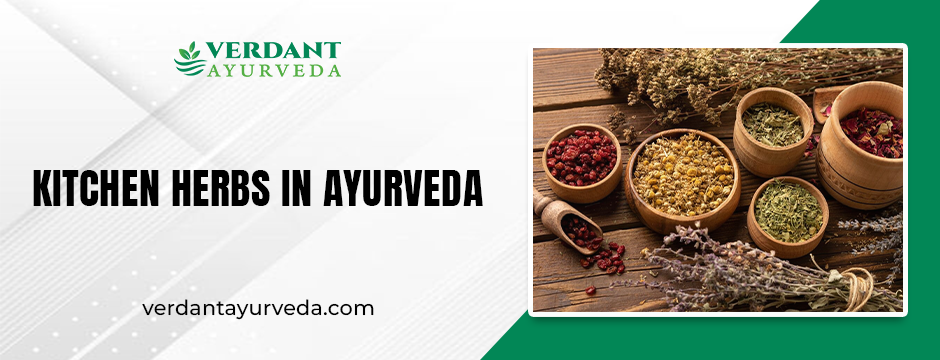Amidst the whirlwind of life today, digestive discomforts such as bloating and indigestion have become very common complaints. Many temporary over-the-counter medications exist for digestive distress, yet an increasing number of people are seeking natural solutions that calm and soothe the stomach and provide wellness benefits.
One common remedy is ginger, an unassuming root with a long history of use in traditional medicine. These kitchen herbs in ayurveda are revered for their highly effective anti-inflammatory and digestive benefits and have been a common part of Ayurvedic medicine for centuries. This article examines how ginger can help reduce bloating and indigestion and provide a natural solution for digestive distress.

Ginger—A Classic Digestive Aid
Ginger, or Zingiber officinale, is a flowering plant whose rhizome (or underground stem) is used as a spice and in traditional medicine. Ginger contains bioactive compounds, like gingerol and shogaol, that possess anti-inflammatory and antioxidant effects, which afford its medicinal benefits.
Reducing Bloating
Bloating often occurs when excess gas builds up in the stomach and food moves too slowly through the digestive tract. Ginger can help mitigate these functions by:
- Promoting secretion of digestive enzymes: This encourages food to break down so nutrients can be absorbed.
- Promoting gastric motility: This hastens the travel of food through your digestive tract.
- Softer stool: This serves to rid the intestinal lining of excess gas and other contents that may cover the surface of the intestines, which can cause bloating.
A published article from Johns Hopkins Medicine supports this by highlighting the efficacy of ginger as a means to reduce fermentation and constipation, which are both causes of bloating and intestinal gas.
Relief from Indigestion
Indigestion symptoms may be increased by:
- Improving gastric emptying: This is the movement of food from the stomach into the intestine.
- Soothing the digestive tract: This is the act of decreasing inflammation and irritation.
- Decreasing nausea: This is particularly beneficial for morning sickness, nausea from motion sickness, or nausea from medications.
Ginger supplementation has been studied in clinical practice to reduce the symptoms of Indigestion dyspepsia (belching and bloating).
Ayurverdic Insight on Ginger
From the Ayurvedic lens on health, digestion is one of the most crucial cornerstones of health. These kitchen herbs in ayurveda have been honoured as a wonderful and even essential herb for vitality, engaging “Agni” or digestive fire, for true digestion and absorption to take place. And in Ayurveda, it is traditional to have a small piece of ginger with lemon and a pinch of salt before meals, to ignite one’s digestive pathways.
Including Ginger in Life
When it comes to ginger, including it in your life can be delicious and even fun! Here are several simple ideas.
- Ginger Tea- Slice fresh ginger and steep in hot water for 5-10 minutes. Consider adding honey or lemon for flavour.
- Ginger Shots- Combine fresh grated ginger juice with lemon and honey for a strong digestive power shot.
- Culinary Use– If you like ginger, add fresh grated ginger to stir-frys, soups or smoothies, for an added kick.
- Pickled ginger– Pickled ginger is usually offered with sushi to aid digestion, and it has a nice taste as well.
When consuming ginger, it is recommended to start slow and listen to your body on how it responds. If consumed in excess, some people may experience heartburn or an upset stomach.

Safeguards and Considerations
While ginger is recognised as safe for most individuals, there are some safeguards to consider:
- Pregnancy: Speak to a doctor before using ginger supplements during pregnancy.
- Medication Interaction: Ginger may interact with blood-thinning medications or medications for diabetes. Always speak to a doctor before starting a new supplement.
- Dosage: Excessive amounts of ginger may result in side effects such as heartburn or digestive distress.
Moderation is important in taking advantage of ginger’s benefits without unintended negative effects.
Supporting Gut Microbiome Health
Emerging research suggests that ginger can positively influence the gut microbiome—the community of beneficial bacteria that play a crucial role in digestion and immunity. By promoting the growth of healthy gut bacteria, ginger helps maintain a balanced digestive environment, which can reduce bloating, improve nutrient absorption, and enhance overall gastrointestinal health. Including ginger in your diet regularly may thus contribute not only to immediate relief from digestive discomfort but also to long-term gut wellness.
Bottom Line
These kitchen herbs in ayurveda stand out as a natural remedy for digestive issues like bloating and indigestion. Its ability to stimulate digestion, reduce inflammation, and alleviate discomfort makes it a valuable addition to a holistic health regimen. Whether consumed as a tea, incorporated into meals, or taken as a supplement, ginger offers a safe and effective way to support digestive health.
For those seeking personalised Ayurvedic solutions and high-quality herbal products, Verdant Ayurveda offers consultations designed to promote digestive wellness and overall vitality. Explore now and embark on a journey to better digestive health today.
